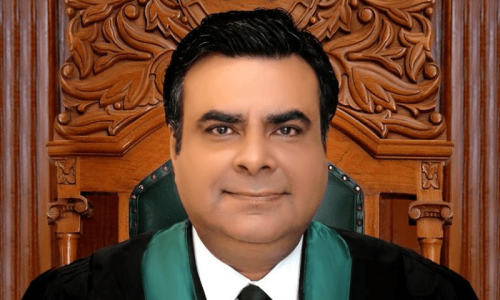RAWALPINDI, July 11: Though a major city of Punjab, Rawalpindi occupies very low place in the provincial government’s budget for 2008-09, allocating no funds for opening new higher level educational institution in the city.
With the “Parha Likha Punjab” slogan gone with the previous government, an “emergency” needs to be declared to make Punjab free of illiteracy by reaching out to 38 million illiterates and out-of-school children of all age groups through independent and focused efforts supporting the “Education for All” commitment by Pakistan.
The Punjab government earmarked Rs16.76 million for the expansion of a college for women in Dhoke Syedan. Budget for the construction of a new building was approved in April last year, however, the allocation has been made available in the budget of 2008-09.
The proposal for the upgradation of Government Inter Hashmat Ali Islamia College was not approved by the provincial government, according to the annual development plan document of the Punjab government. The Hashmat Ali Islamia College needs a new building in addition to its upgradation.
Similarly, funds were not allocated for the construction of academic blocks and library of the Government Degree College for Women in Rawalpindi.
Ironically, the Punjab government has been completely ignoring the cantonment areas where higher level educational institutions in the public-sector are almost non-existent and students have been left at the mercy of private institutions which lack checks and balances.
The cantonment areas still lack a postgraduate college for men, and neither the federal nor the provincial government has paid any attention to the issue so far.
The Punjab government is also mysteriously silent over the construction of a polytechnic institute in Rawalpindi. The City District Government Rawalpindi had announced last year that land was being acquired on Adiala Road for the institute but there is no progress as yet.
Under the development programme, the Punjab government plans to establish 300 Adult Literacy Centres and 200 non-formal basic education schools in jails, factories and brick kilns.
The provincial government is launching a five-year programme for imparting education and skill development for rehabilitating and providing honourable economic opportunities to prisoners in 29 jails of the province.















































Dear visitor, the comments section is undergoing an overhaul and will return soon.